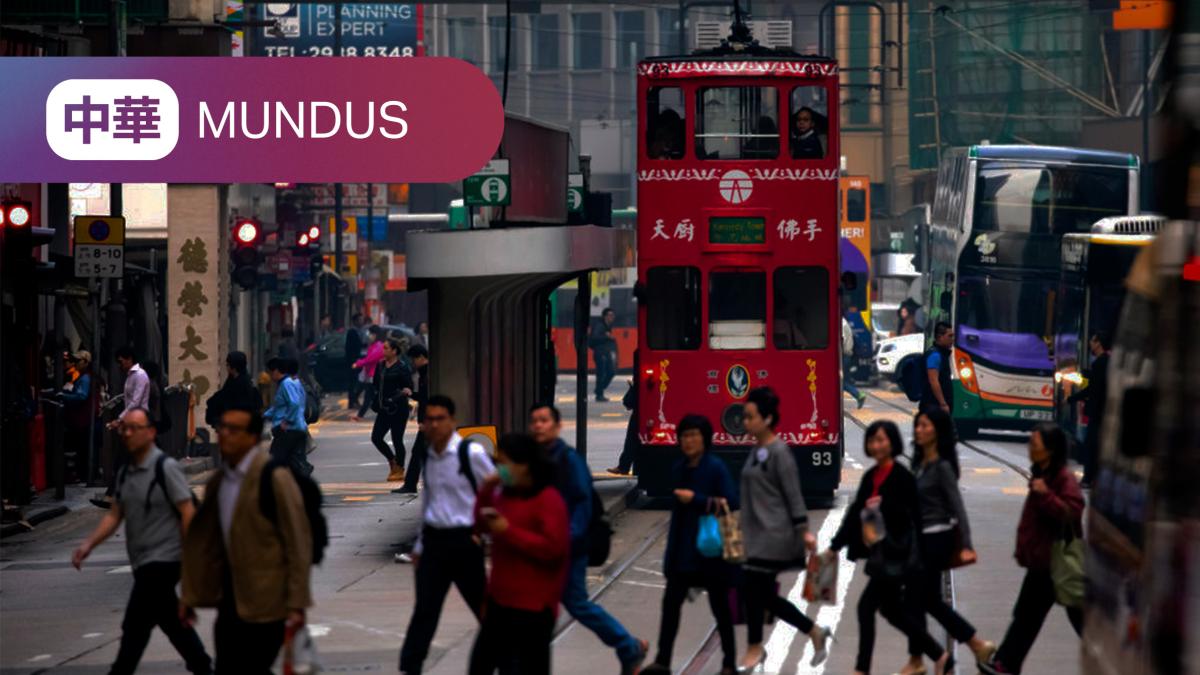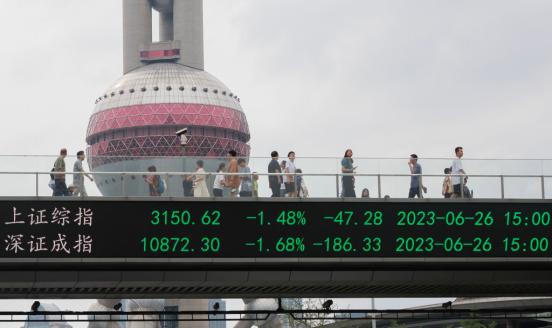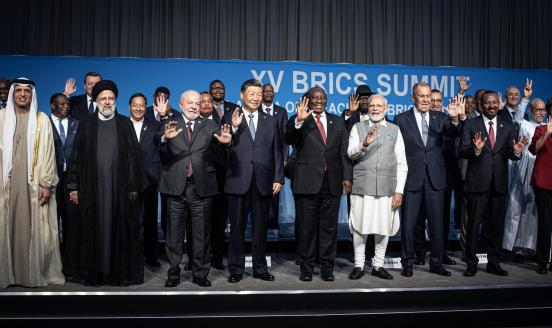What has changed since our ZhōngHuá Mundus series started in 2021?


Since March 2021, Bruegel has produced monthly podcasts on China and its influence on both Europe and the wider world. Guests from across the globe have joined us to speak on a multitude of topics, which have also served as the basis for Bruegel’s monthly ZhōngHuá Mundus newsletter. This dual approach to covering the main economic factors in China has proven successful, allowing for wide reaching and informative conversations. While I have contributed to the podcast series on topics with a strong focus on Asia, other Bruegel researchers occasionally joined us to discuss topics of relevance to their research and China.
Giuseppe Porcaro – the former Head of Bruegel’s Outreach Governance and HR teams - hosted the podcast series up until October 2023, providing a strong European perspective to the conversation. Giuseppe has left Bruegel, but our ZhōngHuá Mundus project remains intact. Bruegel’s podcast producer and Press officer, Yuyun Zhan, will host me and many other experts from December onwards so stay tuned for a new and revised format to make the conversation even more engaging.
As we look forward to new beginnings, it is a good opportunity to take stock of the past two years and share some key takeaways.
First and foremost, China has grown in importance since ZhōngHuá Mundus began, so the need for analysis on its impact on the world cannot be more compelling. This is not only because China’s economy has grown faster than that of the EU, notwithstanding the terrible 2022 the country had due to huge impact of zero-covid policies on the economy, but also because of China’s increasing focus on strategic competition with the US and its much bigger political influence on the world. China has become central to the EU’s sourcing of strategic goods: from pharmaceutical and PPE supplies during the COVID-19 pandemic to renewables for the EU’s energy transition.
Second, Europe’s economic relations with China have become more asymmetric. While European companies have lost out in terms of Chinese imports (the decrease is measured in double digits over past several months), Europe has stepped up its imports from China, resulting in a sharp increase in the bilateral trade deficit to about €400 billion in 2022. A similar estimate is expected at the end of 2023. China’s value added in exports continues to rise overall, and it has increased its exports to the EU. Meanwhile EU exports are losing value added generally, especially in China.
Third, with the increase in Chinese imports into Europe, the heavy dependence on China for some critical products has led the US to react with a new strategy of derisking as the idea of decoupling seems unfeasible and undesirable.
Fourth, China’s dominance in manufacturing is hurting Europe and this is increasingly noticeable due to the EU’s loss of market share in emerging economies. China’s advantage comes from its innovation and competitiveness, but there is no doubt that industrial policy and heavy subsidies also have a bearing on this outcome. The EU seems to be ready now to use the World Trade Organization to readjust this situation by launching an anti-subsidy investigation for certain products such as electric vehicles and wind turbines.
China’s image in Europe has plummeted because of how its role during the pandemic was perceived, followed by its position on the war in Ukraine. This forced the EU to cling to its transatlantic alliance with the US.
However, all is not lost when it comes to the future of EU-China economic relations. Amid growing global problems that need unified action, such as the war in Ukraine, the Israel-Gaza conflict and climate change, European capitals must realise that China is a key part of the solution for any of those global conflicts given its size and influence in the Global South. The US administration is open to discussions with China, clearly exemplified by the Biden-Xi summit which has just finished. The EU will need to increase its channels of discussion with China to avoid a stalemate in the relations. The EU-China summit in early December should provide a good opportunity for this.
We will continue to analyse the Chinese economy and its global impact as well as EU-China relations, so keep an eye out for exciting developments in the coming months.
ZhōngHuá Mundus is a newsletter by Bruegel, bringing you monthly analysis of China in the world, as seen from Europe.
This is an output of China Horizons, Bruegel's contribution in the project Dealing with a resurgent China (DWARC). This project has received funding from the European Union’s HORIZON Research and Innovation Actions under grant agreement No. 101061700.




